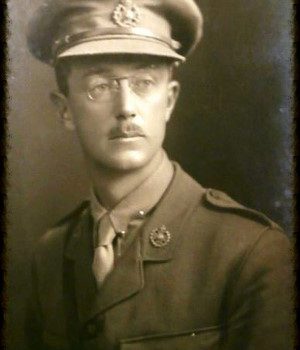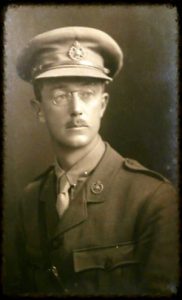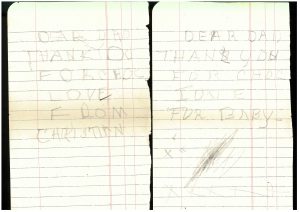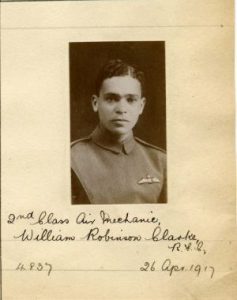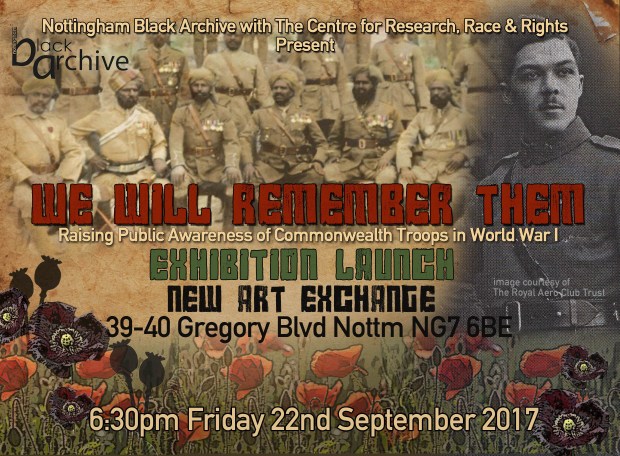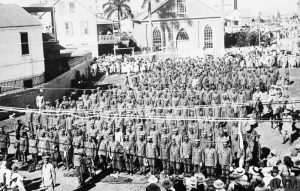
With ‘Pack Up Your Troubles’ and ‘It’s a Long Way to Tipperary’ we all know songs which grew out of the First World War. Now, Away from the Western Front, a National Lottery-funded project is adding a new song to the collection, but with a very different angle. Choirs, musicians, singers and brass bands are all invited to contribute performances of this new song to the First World War ‘Away from the Western Front’ project. ‘No Parades’, composed by Chris Hoban who has written for acclaimed folk band ‘Show of Hands’, has been inspired by the experience of West Indian men who fought in the First World War.
Two battalions of the British West Indies Regiment served in Palestine and Egypt, and at the end of the war they joined the rest of the Regiment in the Italian port of Taranto. After poor treatment by their British officers the soldiers mutinied, demanding equal pay and conditions to the white troops they had served beside for four years. The mutineers were punished and the Regiment disbanded, sent home under guard and barred from the victory parades. The song continues the story:
From the islands and mainland we came
To fight and to show our allegiance
But returned to our homelands in shame
While for some there’ll be honour and glory
The West Indian will have no parades
Musicians, community choirs and brass bands can join the project in two different ways. They can record their performances of ‘No Parades’ by using the score and lyrics provided or use the song and accompanying information on the ‘Away from the Western Front’ website to inspire their own compositions and submit those. The project will produce a CD of the best performances, as well as promoting the performances through the website and social media.
The song has been written in several formats including mixed choir, solo voice with piano, male voice choir and brass band, and also has a version in the style of ‘Mento’, a forerunner of Calypso and Reggae. It forms the centrepiece of an exciting national music project which aims to highlight the often overlooked history of the wider First World War.
Robin Clutterbuck, the project’s National Coordinator said: “Colonial troops played a very big part in the campaigns away from the Western Front, in Egypt, Palestine, Syria, Mesopotamia (modern Iraq), East Africa and the Balkans. The experience of West Indian men was similar to that of Indians and black Africans, and for some led to feelings of anger and disappointment after the war due to the way they were treated once their assistance was no longer required”.
The music project is part of the major national ‘Away from the Western Front’ project, which aims to increase understanding of what made the conflict into a World War. Local and regional partners in Devon, Lancashire, Berkshire, Sussex and London are studying different aspects of the wider war. Local museums and National Trust properties in these areas are working with community groups, youth groups and schools with funding from the HLF grant to research the lives and stories of those who served in these far away campaigns. Those stories are being brought to life through engaging creative outputs, drama, film, art and music, specifically designed to raise public awareness of the First World War away from the Western Front.
For more information about how to participate in this exciting project and to listen to our demo of the song please visit https://awayfromthewesternfront.org/projects/national-music-project/ or contact info@awayfromthewesternfront.org
